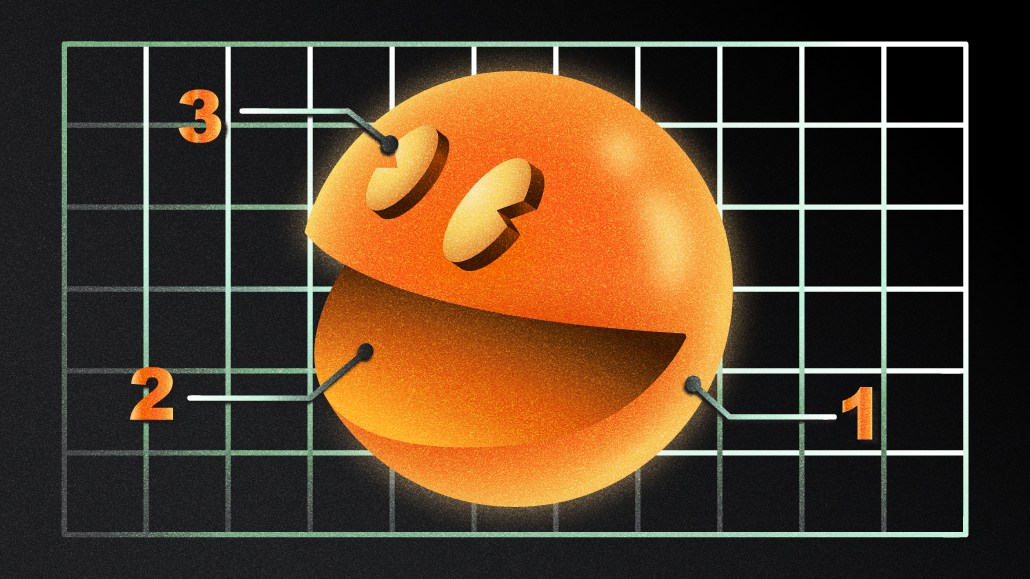Secure your place at the Digiday Publishing Summit in Vail, March 23-25

This article is part of a series exploring trends in marketing, media and media buying for 2024. More from the series →
After a year of widely reported challenges, executives in the esports industry are striking a cautiously optimistic tone going into the new year.
In spite of the industry’s financial struggles over the past year, competitive gaming is not going anywhere. As long as people enjoy playing video games, they’ll also be interested in watching them played at the highest levels — and esports companies still believe there is money to be made in that white space. In 2023, esports titles like “Rocket League” managed to shatter viewership records, and industry leaders remain confident in the overall future of competitive gaming.
Confident or not, esports companies have once again found themselves in the position of having to re-prove the value of their entertainment products after years of unquestioned investment and growth. Here’s a look into the best-case scenario for competitive gaming in 2024.
All eyes are on ‘Valorant‘
In 2023, no esport expanded more than “Valorant,” Riot Games’ tactical first-person shooter title. Thanks to its fast-paced gameplay and diverse, relatively brand-safe aesthetic and narrative, “Valorant” rapidly grew over the past 12 months, rising in viewership and gaining non-endemic sponsors such as Mastercard and Red Bull.
In 2024, both esports organizations and potential sponsors have their eyes on the global “Valorant” league to see if the company will truly be able to deliver on its goal of turning esports into a lucrative entertainment product. Even organizations such as Misfits, which openly rebranded to pivot away from esports in 2023, are keeping tabs on Riot’s fast-growing shooter.
“Focusing on the positive side, you have ‘Valorant,’ which is establishing an ecosystem that aligns incentives properly,” said Misfits CEO Ben Spoont. “And I think you hope to see more of that in 2024.”
In-game item revenue shares are the path forward
In 2023, esports game developers including Riot Games stated their plans to increase the revenue share opportunities for the teams participating in their ecosystems, and teams are waiting with bated breath to see how the developers deliver on these promises in the new year.
One revenue share strategy that has been particularly lucrative for esports organizations is in-game item purchases. Teams have made millions of dollars through branded skin sales in games like “Valorant” and “League of Legends,” but these opportunities have largely been limited to championship-winning organizations in years past, instead of being a widely accessible revenue stream for all teams.
“In-game items is clearly the right revenue model,” said Andy Miller, CEO of the esports organization NRG. “We don’t have a stadium to put butts in seats, so we need to make money from in-game items. The publisher makes money also, but it’s a big revenue source for us.”
Untapped potential in the fighting game community
Brands are still looking for accessible entry points into the competitive gaming community, and the fighting game community is looking increasingly attractive going into 2024. It’s a community that welcomes brand involvement: in 2023, for example, Chipotle partnered with the annual fighting game championship, Evolution Championship Series, and the in-person audience was chanting the brand’s name by the end of the event.
Large esports game developers have taken note of the rabid engagement generated by the FGC. At the moment, Riot Games is in the midst of developing its own fighting game, titled “Project L,” with plans to share more about the game’s esports events in 2024.
“Our plans for Project L (Riot’s new fighting game in development) are starting to come together,” said Riot president of esports John Needham. “We’re not ready to announce anything quite yet, but our goal is to build a sport that makes the FGC proud.”
Saudi Arabian involvement is inevitable — and welcomed by some
Through its acquisition of ESL/FACEIT Group in 2022, the Saudi Arabian Public Investment Fund is slowly but surely taking over many of the world’s most popular esports, administering leagues and backing glitzy international tournaments such as Gamers8. In 2024, Saudi Arabia will be hosting a self-declared Esports World Cup. This infusion of Saudi cash is likely to act as a buoy for the broader esports industry, potential moral quandaries notwithstanding.
“The Esports World Cup, like it or not, will be really important to esports, because it’s someone investing a ton of money to put on a world show,” Miller said. “And no one else is doing that, so everybody’s going to participate in it.”
More in Marketing

Yahoo pauses IAB membership amid a series of quiet cost-saving measures
Yahoo pulls IAB board memberships, following job cuts as PE-owner reportedly reconsiders ad tech investments.

Target looks to e-commerce, advertising investments to help grow the business
Technology is one of the most important areas in which Target will invest with the hopes of returning to profit growth.

‘The conversation has shifted’: The CFO moved upstream. Now agencies have to as well
One interesting side effect of marketing coming under greater scrutiny in the boardroom: CFOs are working more closely with agencies than ever before.








